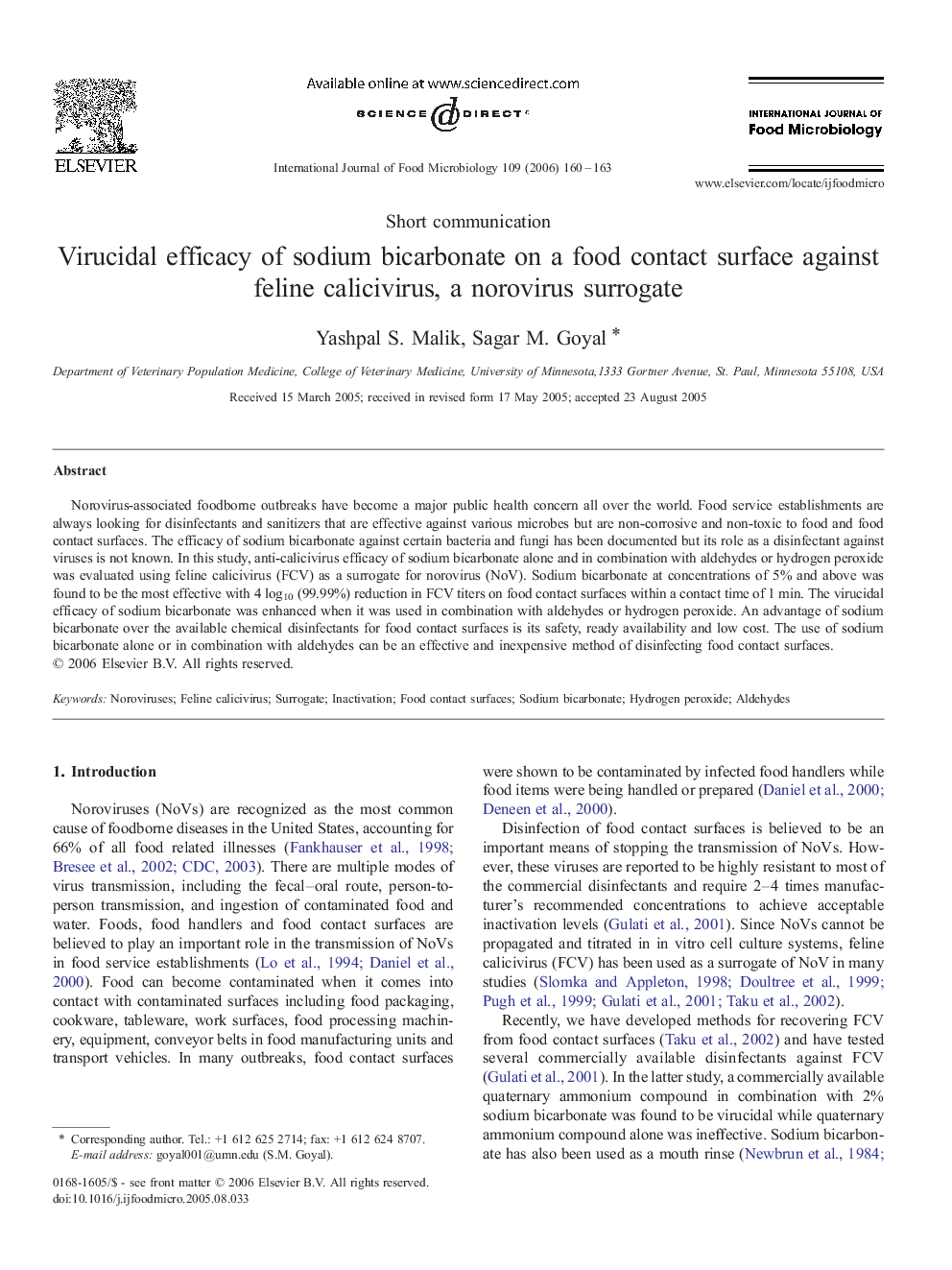| Article ID | Journal | Published Year | Pages | File Type |
|---|---|---|---|---|
| 4370186 | International Journal of Food Microbiology | 2006 | 4 Pages |
Abstract
Norovirus-associated foodborne outbreaks have become a major public health concern all over the world. Food service establishments are always looking for disinfectants and sanitizers that are effective against various microbes but are non-corrosive and non-toxic to food and food contact surfaces. The efficacy of sodium bicarbonate against certain bacteria and fungi has been documented but its role as a disinfectant against viruses is not known. In this study, anti-calicivirus efficacy of sodium bicarbonate alone and in combination with aldehydes or hydrogen peroxide was evaluated using feline calicivirus (FCV) as a surrogate for norovirus (NoV). Sodium bicarbonate at concentrations of 5% and above was found to be the most effective with 4 log10 (99.99%) reduction in FCV titers on food contact surfaces within a contact time of 1 min. The virucidal efficacy of sodium bicarbonate was enhanced when it was used in combination with aldehydes or hydrogen peroxide. An advantage of sodium bicarbonate over the available chemical disinfectants for food contact surfaces is its safety, ready availability and low cost. The use of sodium bicarbonate alone or in combination with aldehydes can be an effective and inexpensive method of disinfecting food contact surfaces.
Keywords
Related Topics
Life Sciences
Agricultural and Biological Sciences
Food Science
Authors
Yashpal S. Malik, Sagar M. Goyal,
